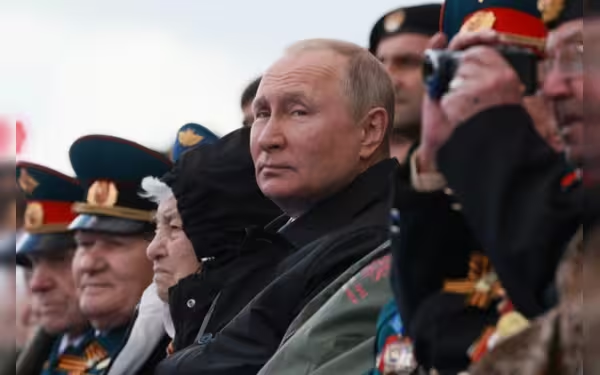Thursday, November 7, 2024 10:01 AM
Understanding Adversaries: Lessons from History
- Mao Zedong's openness to diplomacy with the U.S.
- Vietnam's strategic approach to eroding U.S. will.
- Importance of understanding adversaries in international relations.
 Image Credits: asiatimes
Image Credits: asiatimesExploring the importance of understanding adversaries in international relations through historical examples.
Understanding one’s enemy is a skill that has been lost over time, particularly in the realm of international relations. A historical example that highlights this issue dates back to October 1, 1970, when China’s People’s Daily published a significant photograph. The image featured American writer Edgar Snow standing alongside Mao Zedong at the Tien An Men gate tower. Snow, known for his book “Red Star Over China,” had met Mao in 1936 and, although he was not a Communist, he expressed his support for China and its new government. This photograph was intended to send a strong message to the United States, indicating that Mao was open to resuming diplomatic relations. However, the message failed to resonate with the American political establishment.
In Mao’s perspective, Snow was simply an American. Conversely, the American establishment viewed him as just another Communist sympathizer. This disconnect illustrates a broader issue: the inability of powerful governments to truly understand their counterparts. Often, the stronger a government is, the more it tends to impose its own views, neglecting to consider the perspectives of others. This pattern is not unique to the United States; it mirrors the behavior of imperial powers throughout history.
After World War II, the United States emerged as a dominant force, often operating on its own terms within its sphere of influence. However, this dominance was not without its challenges. The Vietnam War serves as a prime example. In 1965, as the conflict escalated, the North Vietnamese military was tasked with evaluating their chances against the United States. Their findings were clear: the likelihood of defeating the U.S. militarily was zero. Instead of focusing on winning battles, the Vietnamese aimed to erode America’s will to fight, demonstrating a strategic understanding of their opponent.
This historical context underscores the importance of understanding one’s adversaries in international relations. The failure to do so can lead to miscalculations and prolonged conflicts. As we navigate today’s complex geopolitical landscape, it is crucial for nations to learn from past mistakes. Engaging in open dialogue and striving to comprehend the motivations and perspectives of others can pave the way for more effective diplomacy. In a world where misunderstandings can escalate tensions, the art of understanding the enemy is not just a relic of the past; it is a necessary skill for fostering peace and cooperation in the future.













